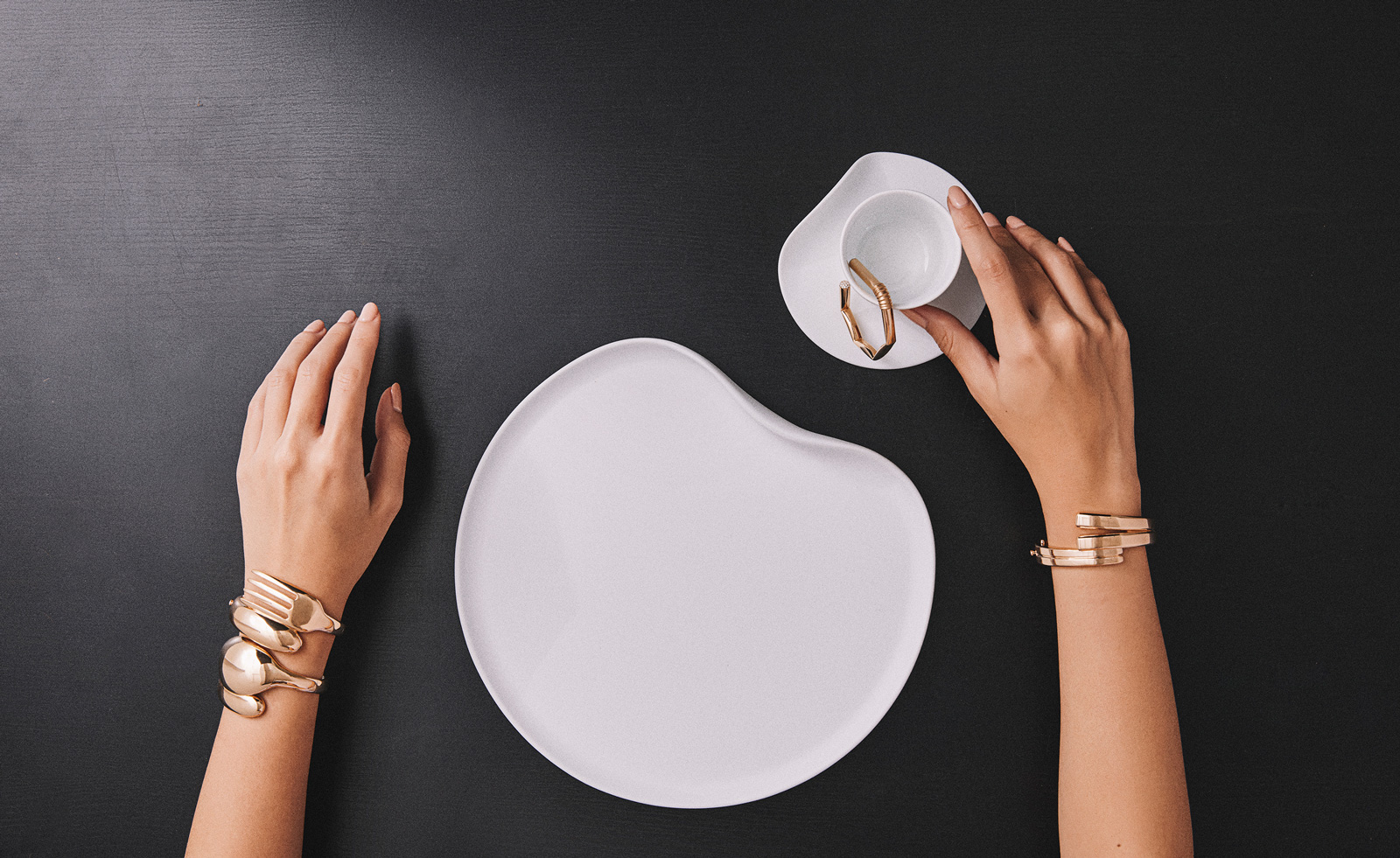
Our top 10 watch and jewellery stories from 2023 are chosen by watches & jewellery editor Hannah Silver. From unexpected watch partnerships to a host of artistic references, designers this year have enjoyed breaking new ground. Enjoy our favourite watch and jewellery moments of the year with these standout stories (in no particular order) celebrating a spirit of collaboration.
Top 10 watch and jewellery stories of 2023
01. Saint Laurent partners with Girard-Perregaux for first watchmaking foray
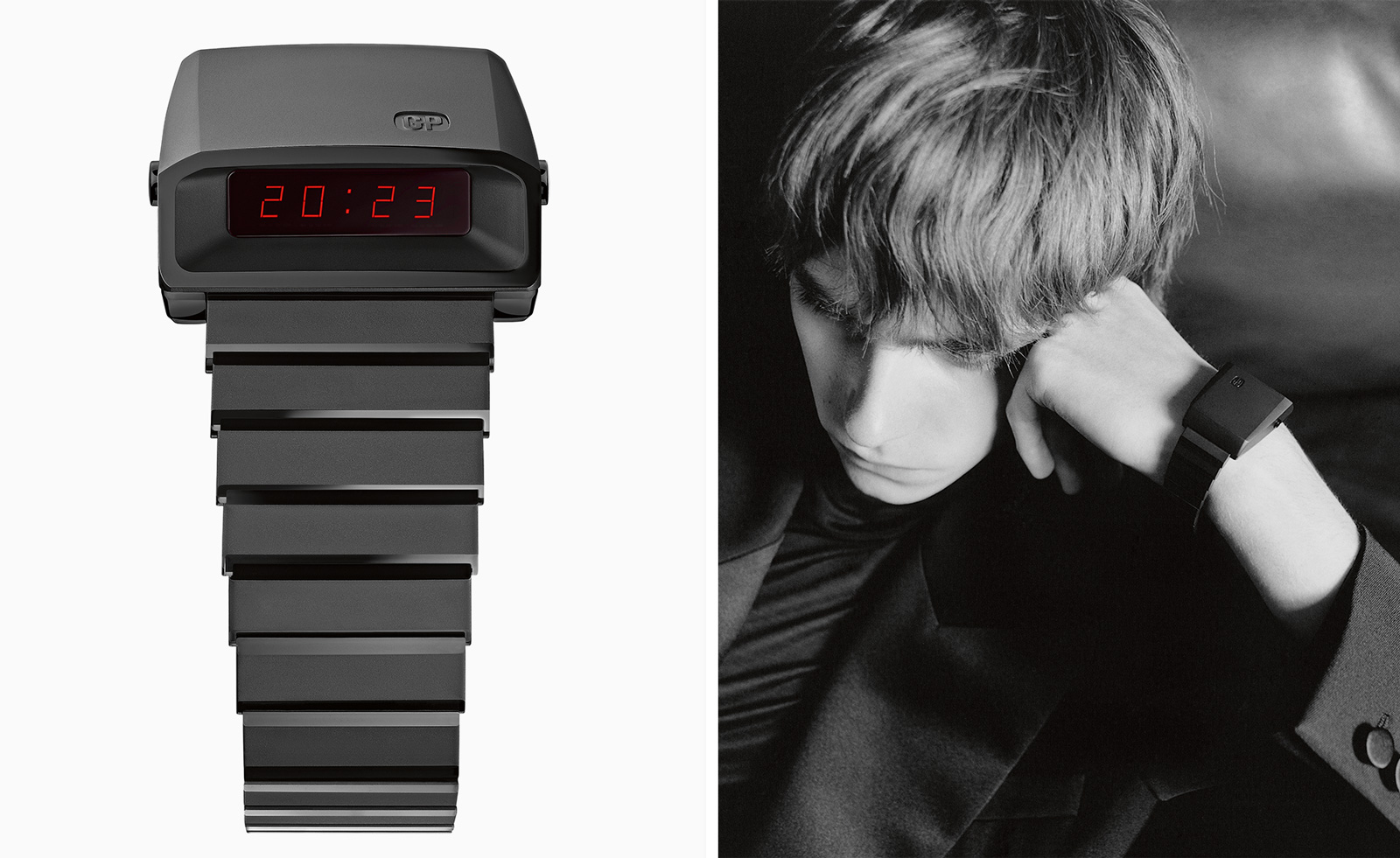
Girard Perregaux’s original Casquette watch, launched in 1976, broke traditional watchmaking codes with its tubular LED display and quartz movement, while its avant-garde shape was a refreshing antidote to the classic dials prevalent at the time. Although not officially called the Casquette, it was quickly dubbed so by a legion of loyal fans eager to see its return.
Following Girard-Perregaux’s 2022’s re-release of the Casquette watch, the brand this year unveiled its latest iteration, the result of a collaboration with Saint Laurent. Saint Laurent creative director Anthony Vaccarello has rethought the futuristic watch in black ceramic and PVD-treated grade 5 titanium, making for a result both strong and light. Designed to arch comfortably around the wrist, the watch sees the addition of a chronograph and a time display showing the time in a different location, a new and useful feature.
02. Six artists interpret Repossi’s ‘Antifer’ jewellery collection with new works
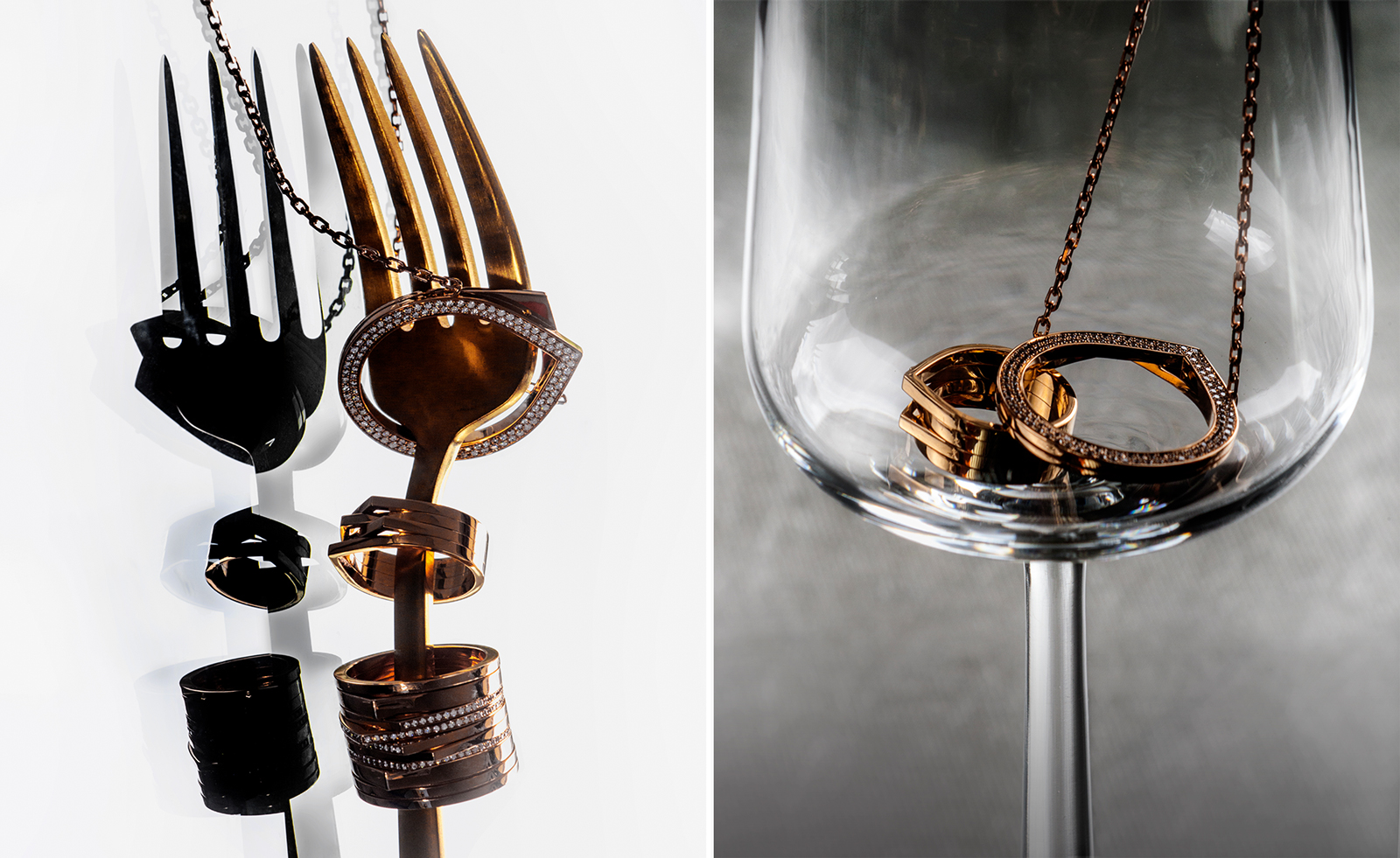
To mark the tenth anniversary of the launch of its ‘Antifer’ collection, Italian jewellery house Repossi created five new designs, as well as three pieces of high jewellery. In the set of rings, stacked rows of precious metals cut asymmetrical silhouettes for the first time, while the classic proportions of the ‘Antifer’ motif are teased into an elongated peak. Hoop earrings and a long pendant necklace with a fully pavéd symbol are elegant new additions, while a chain necklace in pink gold playfully works the motif into its links. Repossi also collaborated with six artists, who interpreted the collection to create artworks for a Paris exhibition.
03. Pin your hopes on Chanel’s new watch
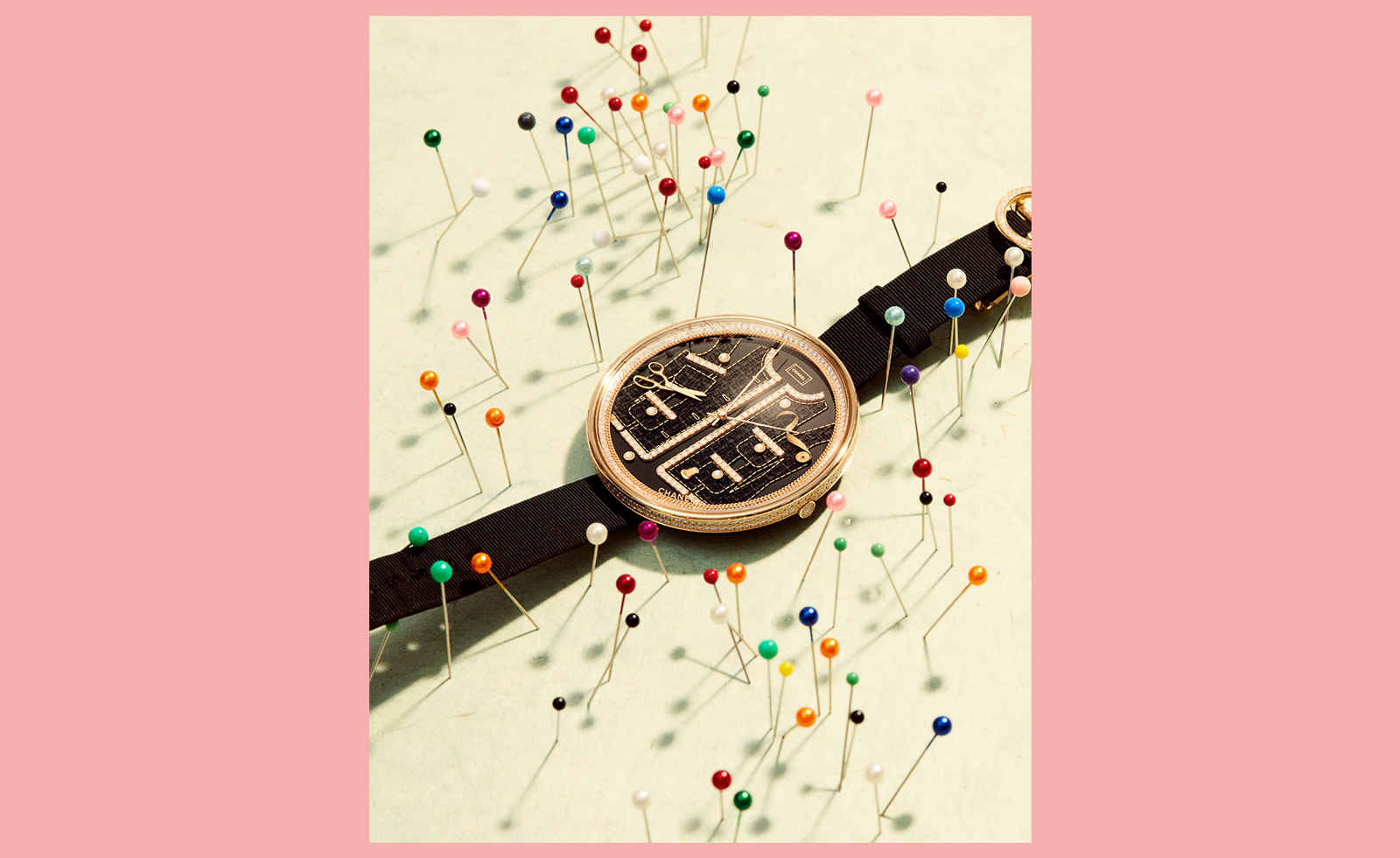
The humble pin cushion is behind the latest watch from Chanel, with Arnaud Chastaing, the director of Chanel’s watchmaking studio, taking inspiration from objects whose architecture centres around their function. Chanel watches traditionally take their design cues from the French maison’s world – from the winding of a distinctive embellished leather handbag chain around the wrist to evoking the form of a No. 5 perfume bottle stopper or imprinting tweed on a dial.
With the Mademoiselle Privé Pique-Aiguilles watch, it’s the pin cushion that Gabrielle Chanel often toted on her wrist in her role as seamstress that acts as muse. Cutting a playfully oversized silhouette, the tweed motif version features the pattern of a tweed jacket, trimmed with 92 diamonds, underneath a domed case evoking the shape of a pin cushion. It’s dotted with the tools of an atelier, such as thimbles, scissors and tape measures, all drawn in sculpted gold.
04. Completedworks turns its reductionist vision to bags
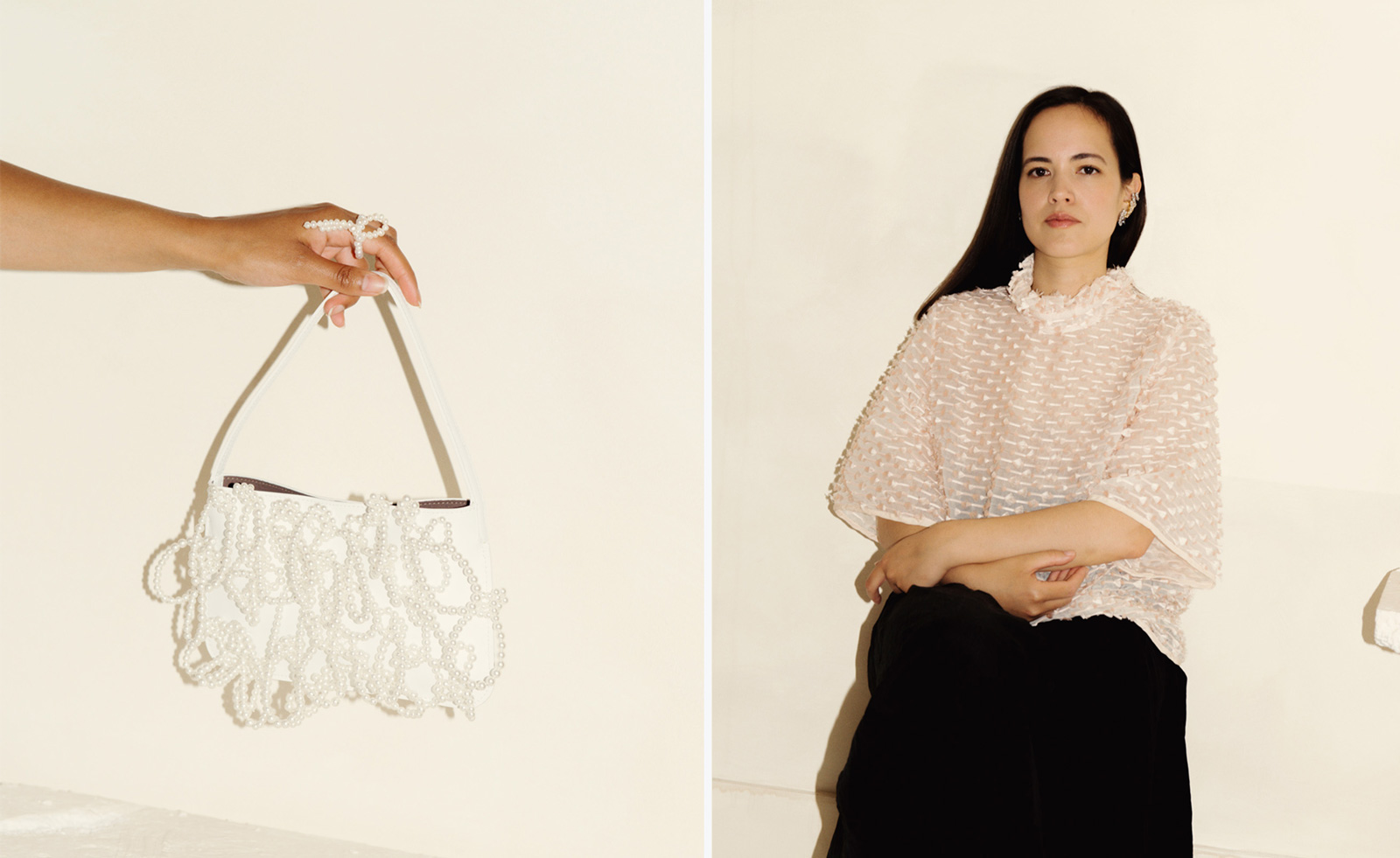
A preoccupation with the relationship between form and function meant a move into fashion accessories was perhaps inevitable for London-based jewellery and homeware brand Completedworks. For the past decade, its artistic director Anna Jewsbury has infused ceramics and jewellery with a sculptural sensibility, presenting everything from vases that appear to have been casually scrunched in the hand to offbeat, playfully proportioned earrings. Now, she turns her sharp eye to bags.
05. ‘Bauhaus goes American!’: Louis Erard and Stephen Silver Fine Jewelry’s playful new watch

A bold geometry defines the watches created in a collaboration between US-based Stephen Silver Fine Jewelry, Swiss watchmaker Louis Erard and French watch designer Alain Silberstein. Alain Silberstein’s love of primary colours meets playful details – such as the smileys rather than the traditional date in the date window – in new watch sets, which include 72 Louis Erard x Alain Silberstein for Stephen Silver La Semaine watches. Special box sets also contain both Louis Erard x Alain Silberstein for Stephen Silver Le Régulateur and La Semaine watches.
‘This piece is a great representation of the sensibilities of Alain Silberstein, the renowned French watch designer,’ says Jared Silver, president of Stephen Silver Fine Jewelry of La Semaine. ‘It is bold, playful, and whimsical. We wanted to collaborate with him because he shares much in common with the attitudes of our collectors here in Silicon Valley, who enjoy their watches with a sense of fun. As the watch's USA edition, we wanted to bring in the quintessential Americana colours.’
06. Björn Weckström’s epic sculptures and chunky jewellery shine a light on the human condition
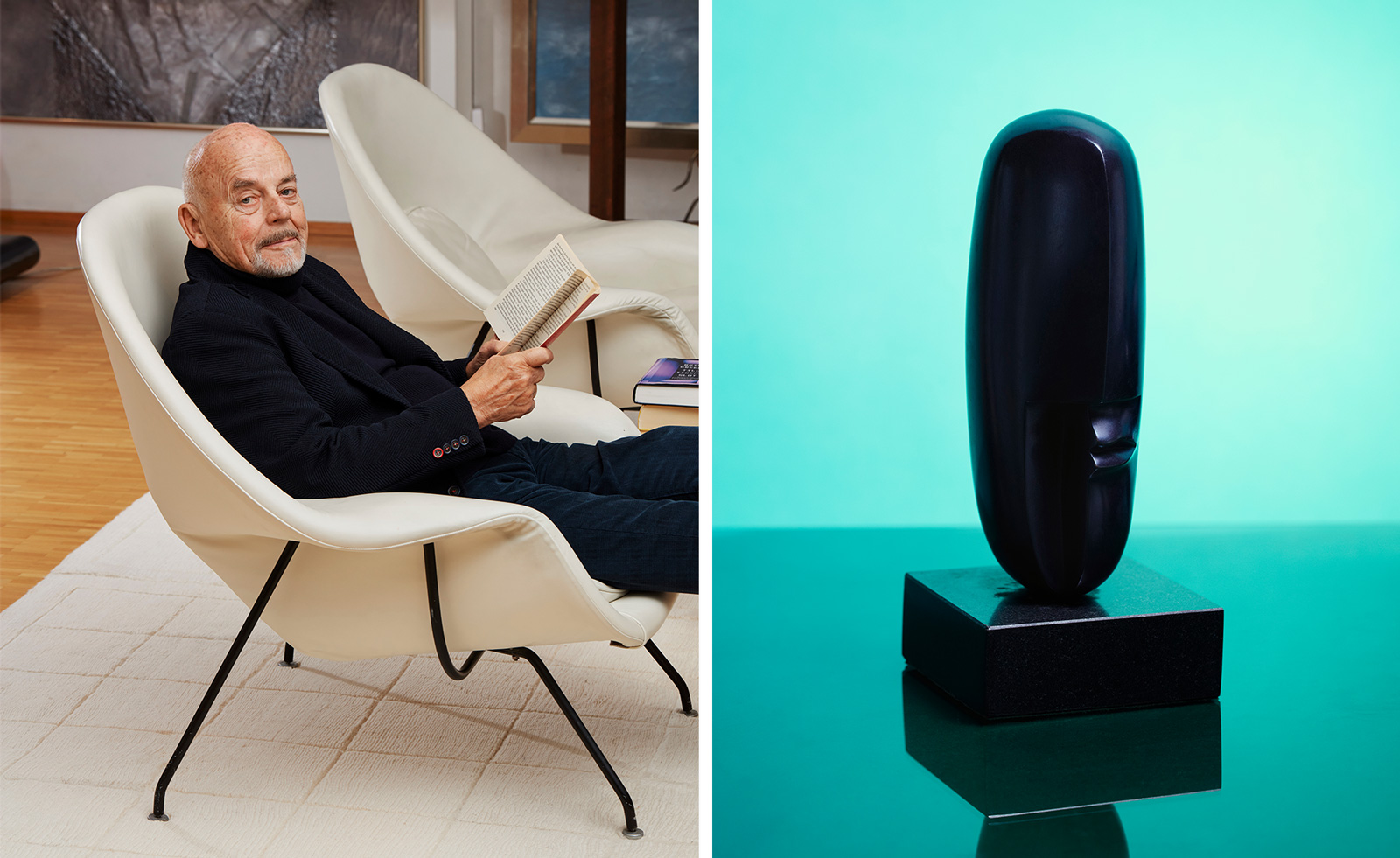
For Finnish sculptor and jewellery designer Björn Weckström, the frailties of the human condition are a lifelong preoccupation. His sculptures, which expose the challenges facing mankind, are epic in scale and cast in an eclectic mix of materials: marble, bronze, glass and resin. The 88-year-old artist draws on both his Nordic heritage and the decades he spent in Italy, as a lecturer at the University of Pisa from 1979, for works that capture his fascination with Greek mythology, imbuing the familiar forms of the gods with an empathetic humanity.
While Weckström has always been intrigued by the possibilities offered by materials, he originally manipulated these on a smaller scale, beginning his career as a jewellery designer. ‘I always wanted to be a sculptor, but, the fact is, my family was very much against it,’ he tells us from his home in Espoo, Finland. ‘My grandfather was a jeweller, but I wasn’t so interested. We made a compromise and I went to the [Finnish] Goldsmith School and started with the small things – it was a good time. I could make things look different. I wanted to take it to a higher level where it’s so free, you don’t have any function. It’s like a piece of art.’
07. Reimagined Cartier Baignoire watch is a fitting homage to the original
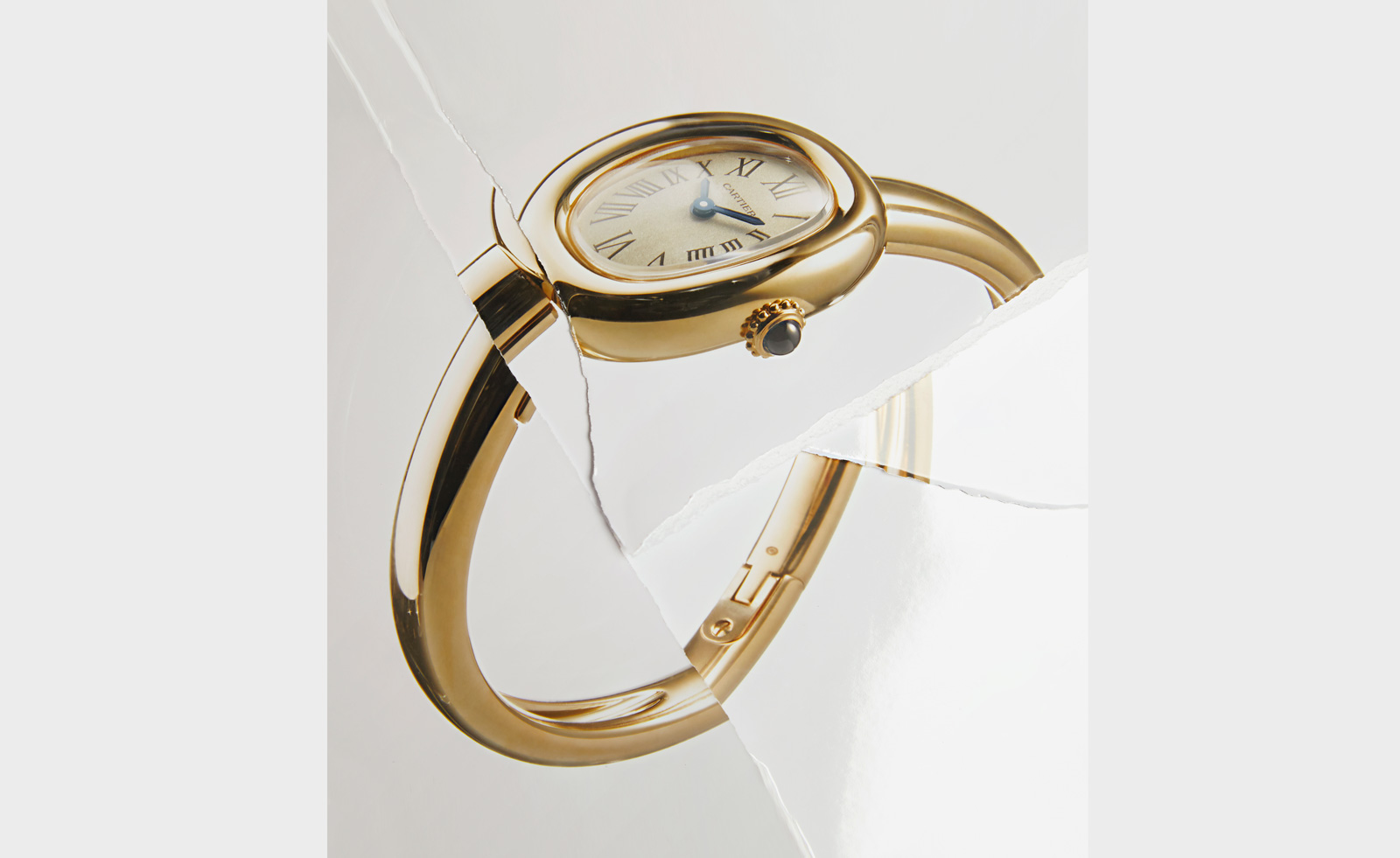
With its minimalist mood and simple silhouette, the reinterpreted Cartier Baignoire is part bangle, part watch, and references key moments in Cartier’s design history. Originally conceived in 1912, the Baignoire is commonly thought to take its name from the French word for bathtub, but it actually refers to VIP seats at the opera. ‘It was where the wealthy people sat,’ explains Pierre Rainero, Cartier’s image, style and heritage director. ‘There were six seats together, with a kind of barrier around them.’
Reinvented numerous times since its inception, today’s Cartier Baignoire subscribes to the poetry of reduction in its elegant play with precise geometrical forms. Designed to be worn as close to the wrist as possible, the flat face is a sleek foil for the contours of the bracelet. The design ‘is linked to our culture as a jeweller’, says Rainero. ‘When you’re a jeweller, [you are considering] the right fitting to the body, and beyond that, the way an object that you have on your body accompanies your movements, so it’s not a constraint, but, on the contrary, it adds magnificence to your movement. That is the key. This is the essence of being a jeweller, and in our way of creating watches, we always have it in mind – it’s second nature and obvious for us to stay true to it.’
08. Chaumet spotlights the golden age of jewellery design in Paris
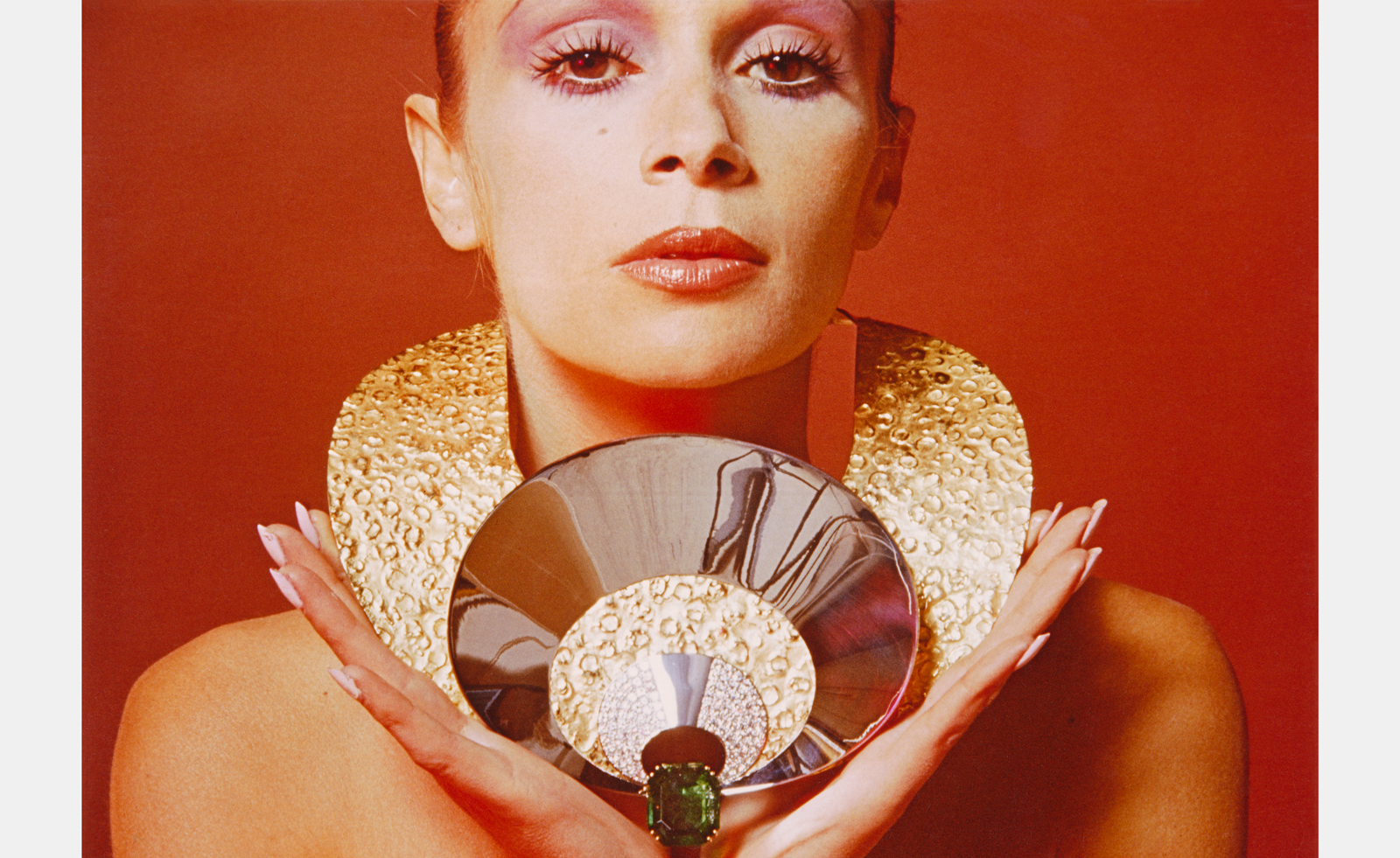
To step into the Chaumet exhibition, ‘Un Âge d’Or’, in Paris is to step back in time, into an era where avant-garde design entered the jewellery mainstream. Held in Chaumet’s home on the Place Vendôme, the exhibition, curated by Vanessa Cron, celebrates designs from the period 1965 – 1985, with jewellery from the brand joining exquisite objets d’art.
Furniture by Pierre Paulin, tapestries by Victor Vasarely, a ‘Togo’ sofa designed by Michel Ducaroy with Floraly fabric, a Gavrinis rug, fashion by Dior and Paco Rabanne and lithographs by Andy Warhol set the scene for the jewellery, which was in its most experimental era. In a direction spearheaded by René Morin, who joined Chaumet in 1962, and later by Pierre Sterlé, who joined the maison in 1976, jewellery became playful.
09. Aymer Maria jewellery gives historical references a modern spin
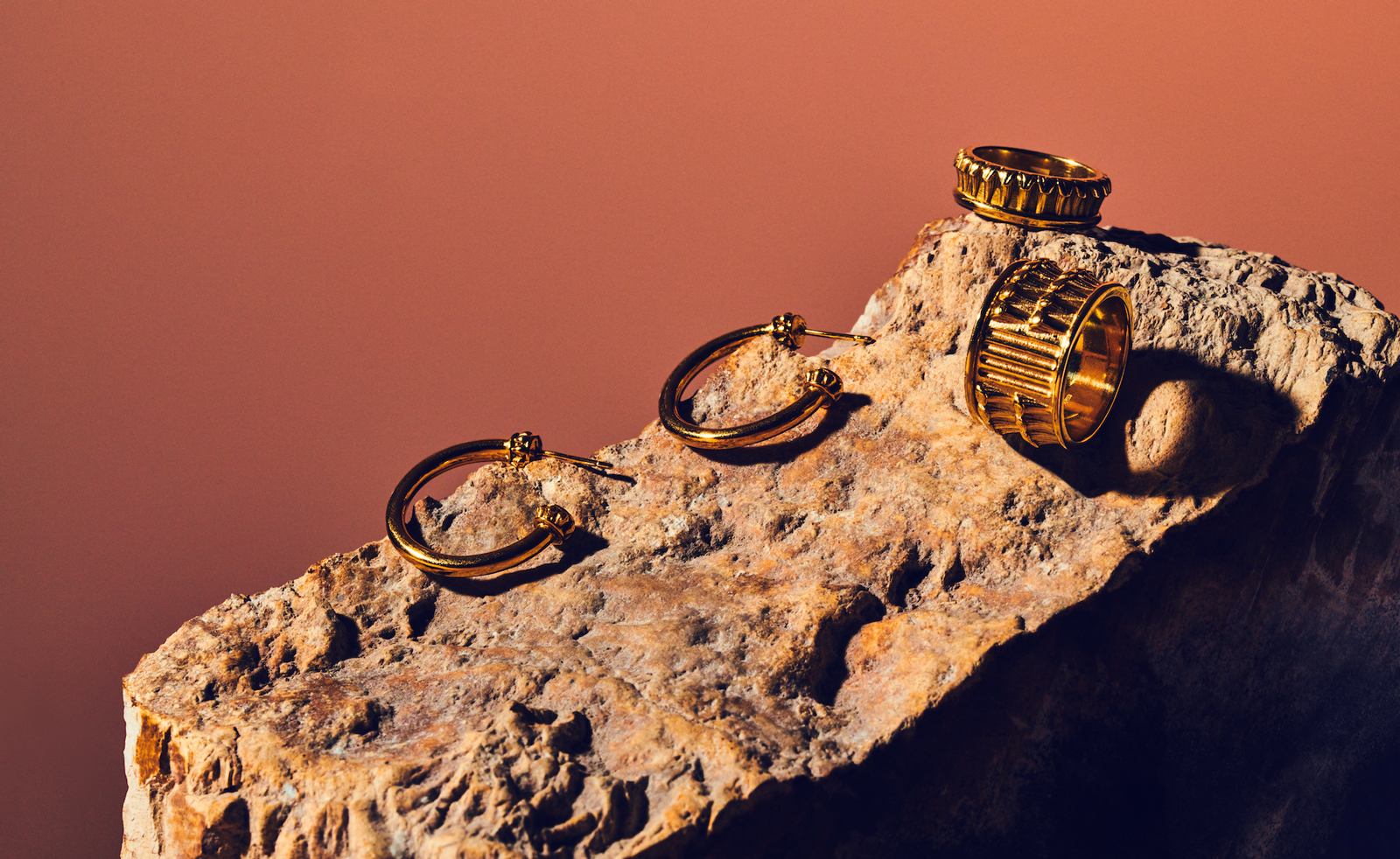
‘I have always been fascinated by the concept of wearing a piece of art as jewellery. I remember looking at my mother’s 1980s costume jewellery pieces by Yves Saint Laurent, Butler & Wilson and that sort of stuff. The big shoulder pads, the style, the red lipstick was a real wow for me as a child,’ relates Ruth Aymer, founder of Aymer Maria, a contemporary jewellery house that takes the built environment in all its iterations as a muse and conduit to deeper truths.
Aymer, who was raised in London and is of Dominican and Sierra Leonean heritage, didn’t immediately actualise her observations into an intention to found a jewellery house. However, the seeds of ambition were further germinated by childhood walks in London’s Pimlico and Belgravia, where Thomas Cubitt’s terraces ‘were so pleasing to see, from the symmetry of houses to the stucco fronts and columns’. Only as an adult, after the pandemic provided the necessary pause, did her ideas finally percolate. ‘I thought, “If I don’t start now I never will!'”
10. Feast your eyes: Nadine Ghosn brings cutlery-inspired jewellery to the table
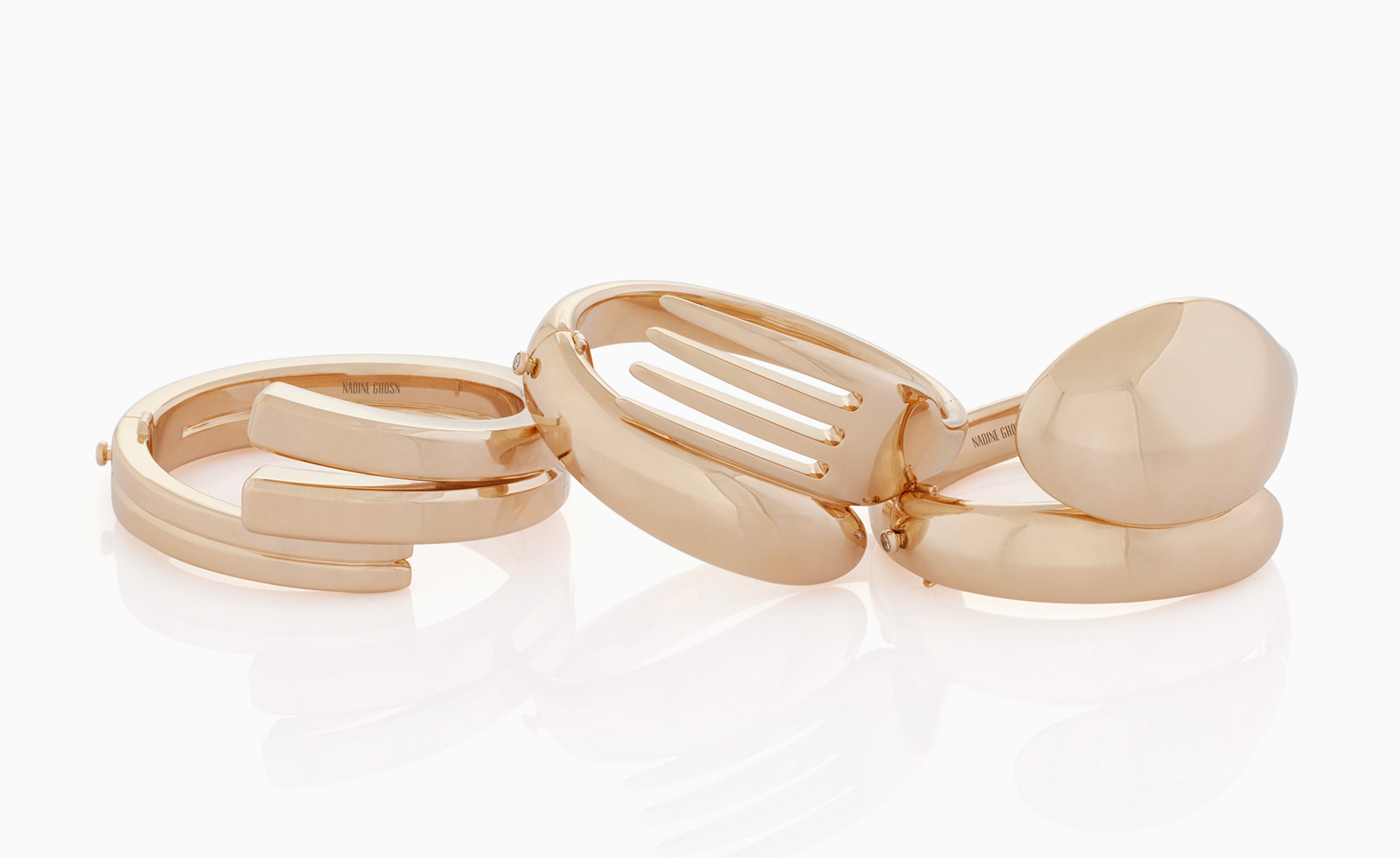
Everyday items take on a precious significance in the hands of jewellery designer Nadine Ghosn – featured in our Wallpaper* USA 300 – who brings a mischievousness to eating and drinking accessories in her recent collection, Youtensils. A spoon dipped in diamond-encrusted Nutella, gold straws that wind their way around the wrist, and a name spelt in alphabet-soup letters comprise a playful take on the quotidian, all in Ghosn’s signature tongue-in-cheek style.
‘I am attracted to the things that we may not notice or honour daily that help us to live a better life – the hidden, the unrecognised,’ says Ghosn. ‘I didn’t come from a conventional jewellery background. When I first shared that I wanted to explore jewellery, I was led to two limiting beliefs: that the competition is fierce, and that I would fail. I had nothing to lose and everything to prove.







